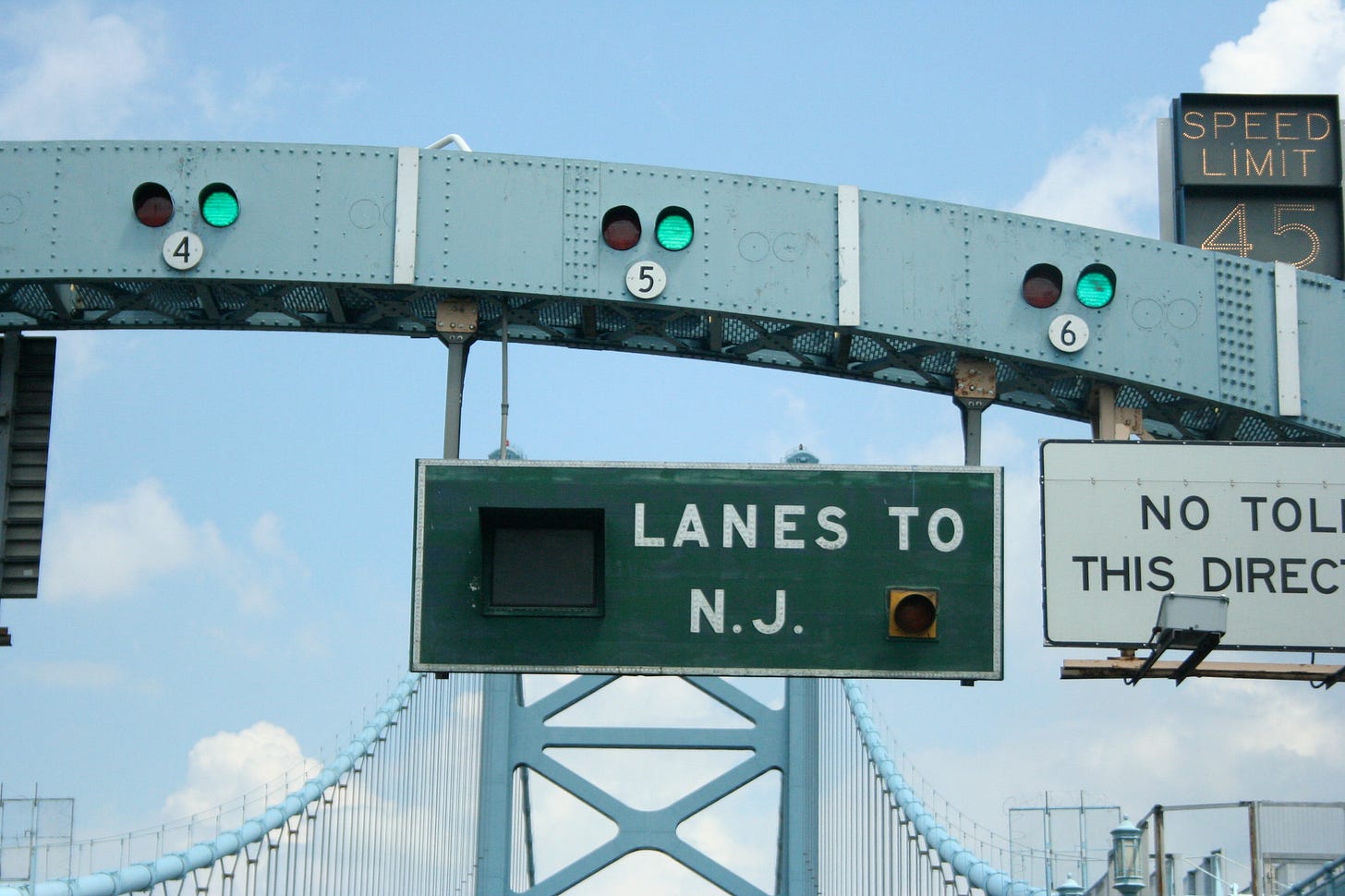Camden Wants Answers
Did billions of public dollars create jobs for New Jersey workers?

This is Boondoggle, the newsletter about corporations ripping off our states, cities, and communities. If you’re not currently a subscriber, please click the green button below to sign up. Thanks!
I grew up in New Jersey and so reserve a special kind of dismay for its truly horrible corporate subsidy system.
For a while there, it looked like things might get better after Gov. Phil Murphy launched a well-publicized investigation into the state’s penchant for chucking money at corporations with no accountability or transparency. The investigators did their jobs, producing several reports that were a litany of economic development horrors, but state legislators reacted by putting some cosmetic reforms and billions more dollars into essentially the same system.
Now, some community members and activists in South Jersey are taking matters into their own hands.
The place hardest hit by New Jersey’s failures is Camden, a city across the Delaware River from Philadelphia that is consistently one of the state’s poorest. Many programs meant to give Camden a economic boost have failed to produce results due to a combination of incompetence and corruption, with notorious South Jersey political boss George Norcross sucking up public dollars for his family and cronies and producing nothing for Camden’s residents.
And when I say corrupt, I mean it. Read my reporting here about how a program meant to bring the city a grocery store utterly failed due to corrupt insider dealings.
Overall, Camden-based corporations received more than $1.5 billion in state subsidies, and yet the city is still in the same place, poor and without a sustainable economic base.
Last week, a coalition called Camden We Choose delivered petitions to the Camden City Council, kicking off an effort to make the corporations that benefited from subsidies reveal whether they’re actually hiring local workers. Under New Jersey law, about 20 percent of municipalities are governed by the Faulkner Act. That law allows petitioners, if they collect enough valid signatures, to force a city council to consider and approve a new ordinance. If the council doesn’t meet the petitioners’ demands in some way, the proposed law goes before voters for a referendum.
The Camden We Choose coalition proposed a new rule that city businesses with more than 25 employees must disclose how many of their employees are from Camden, and submitted enough signatures that the council will likely have to take up the matter. If the council takes a pass, it will go before voters in November.
While the rule, if adopted, would apply to all city businesses, the intended targets are those corporations that received state subsidies.
“For years, the Camden County Democrats, led by George Norcross, have imposed a corruption tax on Camden families, while claiming they are great philanthropists,” said New Jersey Working Families Party director Sue Altman. “These corporations received more than a billion dollars in state subsidies — supposedly to bring jobs to a city that has long suffered from disinvestment and poverty, and we’re supposed to accept that without data? On what planet?”
New Jersey is, of course, not the only place where local hiring requirements in economic development deals is an issue. Advocates have been pushing for Ohio’s massive deal with Intel to include local hiring requirements, an effort that has so far been rebuffed by the corporation and state officials. And even when local hiring rules are put in place, they are often weak, unenforced, or corporations simply complain enough that they get waived.
But done right, they can be a way to at least ensure that some benefit of these deals gets into the local economic bloodstream.
The great thing about this story is that Camden community members are finding a way to make public what everyone suspects: That few Camden residents benefit from the programs ostensibly aimed at them. It’s pretty clear the political machine in their area is not interested in providing these answers without the force of law, so they’re using the tools at their disposal — in this case a petition process — to get there.
It reminds me of the Maryland community that used open meetings law to help block an Amazon data center. There are rules and regulations lying around that community members can dust off, if they know where to look, when the political process is otherwise working against them. (Have any of these I should know about? Please let me know!)
Generally, when transparency measures such as this one get on the ballot, they pass overwhelmingly, because regular folks get it: Corporate subsidy deals don’t work for them, and were never meant to . (It’s pretty frustrating that the same doesn’t hold true for politicians themselves: Those who make more subsidy deals tend to get more votes.)
I’ll keep an eye on this one, because if it passes, Camden could show other New Jersey communities, and folks elsewhere, that a new transparency tactic is available.
ONE MORE THING: I always love to see political ads based on notorious corporate subsidy failures. This one is from Wisconsin Senate hopeful Tom Nelson.

Thanks for reading this edition of Boondoggle. If you liked it, please take a moment to click the little heart under the headline or below. And forward it to friends, family, or neighbors using the green buttons. Every click and share really helps.
If you don’t subscribe already and you’d like to sign up, just click below.
Finally, if you’d like to pick up a copy of my book, The Billionaire Boondoggle: How Our Politicians Let Corporations and Bigwigs Steal Our Money and Jobs, go here.
Thanks again!
— Pat Garofalo
